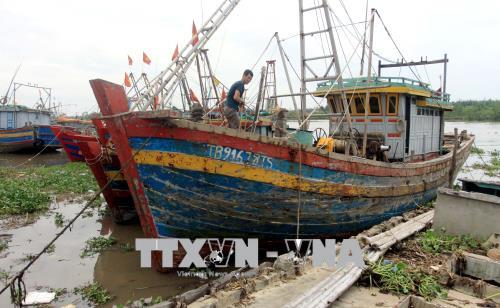 Storm Mulan heads toward northern coast
Storm Mulan heads toward northern coast
Home > Policies
Vietnam moves to turn coastal zones into Special Administrative-Economic Units
By VNA 12/18/2017 11:19 |
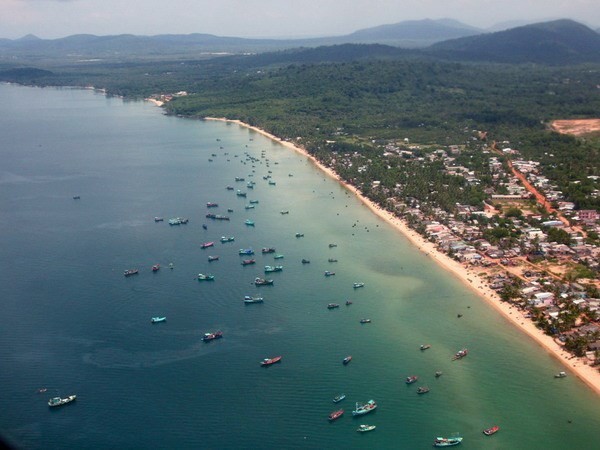
Phu Quoc Island in Kien Giang province (Photo VNA)
The Government has decided to initially develop three special administrative-economic units - Van Don in northern coastal Quang Ninh province, Bac Van Phong in central coastal Khanh Hoa province and Phu Quoc island district in southern coastal Kien Giang province.
At its eighth plenary session in September in Nha Trang city, the central
More than 60 delegates from the NA’s Committees, relevant ministries, sectors and the provinces of Kien Giang, Quang Ninh, Khanh Hoa attended the event.
Hoang Thanh Tung, Vice Chairman of the NA’s Law Committee, said the bill is complicated and unprecedented in
According to the Ministry of Planning and Investment’s report, the draft law will be a legal framework for building and developing special administrative-economic units, namely Van Don (Quang Ninh province), Bac Van Phong (Khanh Hoa province) and Phu Quoc (Kien Giang province).
The three areas are expected to grow strongly in the fields of tourism, services, trade and finance with new management methods and a favourable investment climate.
The report underlines that the draft law needs to build breakthrough institutions and policies, particularly in socio-economic aspects, administration and judiciary, in line with the Constitution, and international treaties to which
Participants discussed major contents of the draft law, including the apparatus of the local administration of the special administrative-economic units; building favourable business environment; incentives on taxes and land; and mobilising resources for building infrastructure in these areas.
For experts, the Law on Special Administrative-Economic Units must create breakthroughs in mechanisms and preferential incentives to boost economic development, experts have said.
Speaking at a recent meeting of the Ministry of Planning and Investment to discuss the draft law before it came up for comments at the fourth plenary meeting of the 14th National Assembly, former deputy head of the National Assembly Economic Committee Nguyen Van Phuc said the law must answer a number of questions.
“How will the law create legal frameworks and policies strong enough to be launching pads for three special economic zones to develop vigorously? What are the special mechanisms that need to be put in place? How should difficulties and constraints be tackled? What administrative management models should be applied here?” Phuc said these were some of the issues that needed to be addressed.
The Ministry of Planning and Investment, which is in charge of drafting the law, expected that with preferential incentives, the three special zones would attract investment worth dozens of billions of dollars, which would generate huge sums in terms of added value and boost average income to 12,000-13,000 USD per capita.
The ministry estimated that the special zones would contribute billions of dollars in taxes and fees to the State budget
Until now,
The country has 17 coastal economic zones, 26 border economic zones and 328 industrial zones, which altogether have attracted some 153 billion USD investment, accounting for 52 percent of registered foreign direct investment in
Globally, there are some 4,500 special economic zones in 140 countries, and most countries have laws regulating these zones, according to the ministry.
Experts said it was important for
Tax and fee incentives will be an important factor in turning special zones into a magnet for investment.
However, experts said tax and fee incentives were just initial attractions, and what is most important is still an open institutional environment to retain investors for a long duration.
This administrative management model would be appropriate for special zones to enable them to make breakthroughs, according to Nguyen Van Thanh, deputy chairman of the People’s Committee of Quang Ninh province, who was leading the compilation of the project on establishing the Van Don Administrative-Economic Unit.
The law is expected to be passed at the upcoming meeting of the National Assembly in May 2018.
According to Deputy Minister of Planning and Investment Nguyen Van Trung, by the end of 2016, there were about 4,500 special administrative-economic units in 140 nations and territories in the world.-VNA
Photo
 Storm Mulan heads toward northern coast
Storm Mulan heads toward northern coast
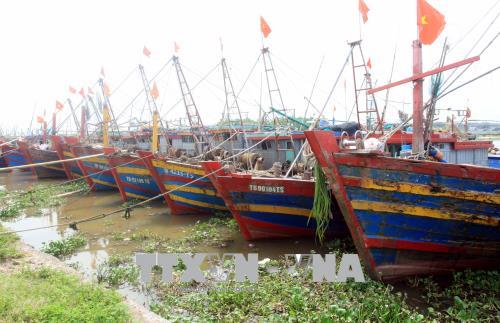 Storm Mulan heads toward northern coast
Storm Mulan heads toward northern coast
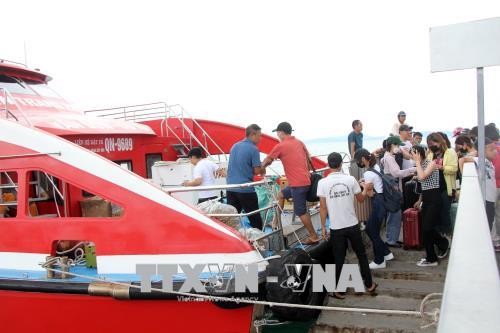 Storm Mulan heads toward northern coast
Storm Mulan heads toward northern coast
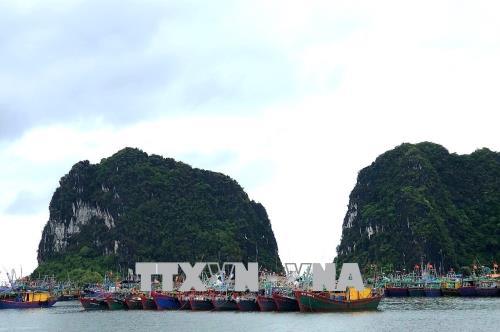 Storm Mulan heads toward northern coast
Storm Mulan heads toward northern coast